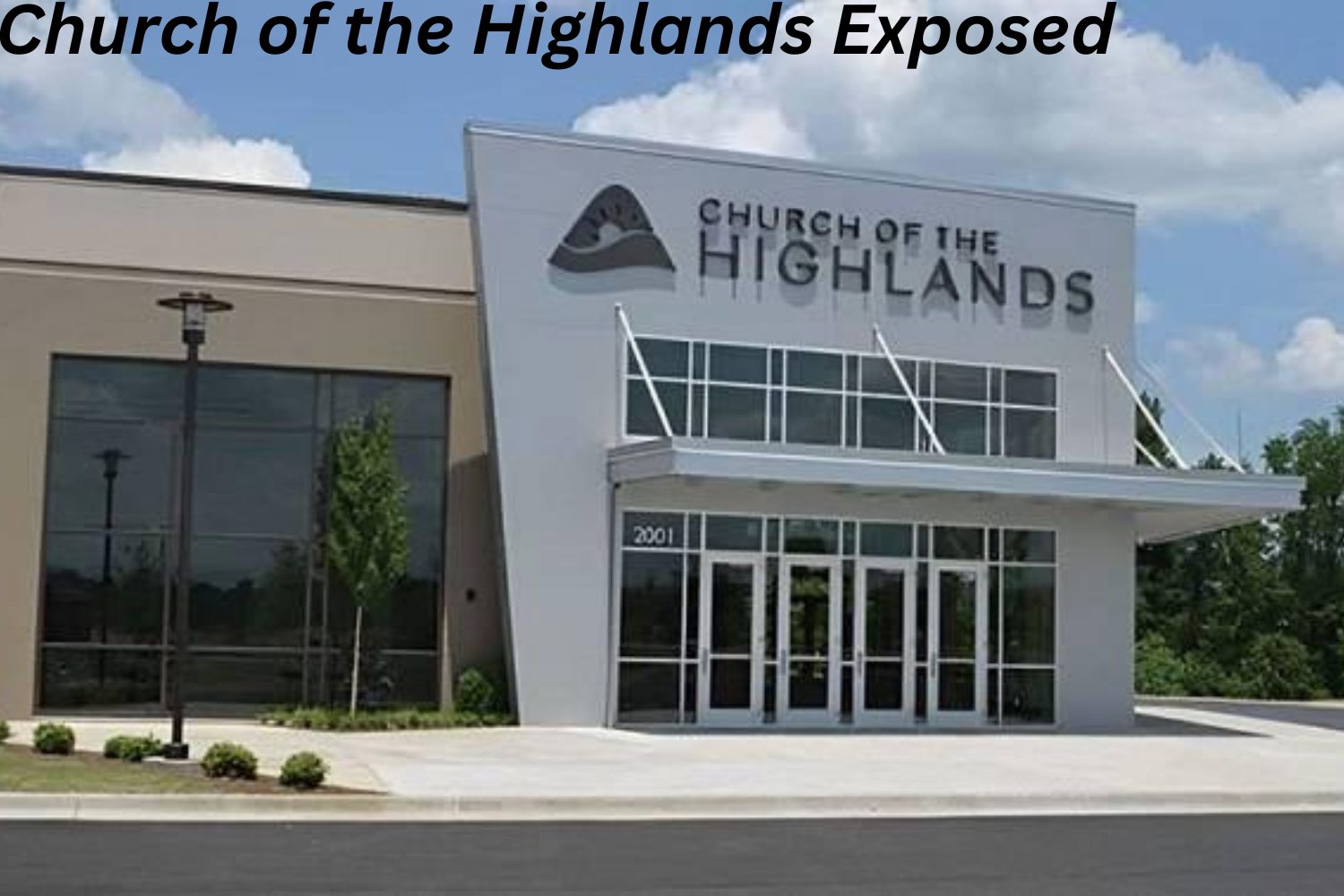When it comes to megachurches, few have made as big of a splash as the Church of the Highlands. Founded in 2001 by Chris Hodges in Alabama, this dynamic congregation has grown exponentially, attracting thousands with its vibrant worship services and community-focused initiatives. But beneath its glossy surface lies a web of controversies that many are eager to uncover. As we peel back the layers, we find stories of financial misconduct, questionable teachings, and testimonies from former members that challenge everything people think they know about this church. Join us as we delve into the heart of these issues—Church of the Highlands exposed: uncovering the truth behind its practices.
Controversies surrounding the church
Church of the Highlands Exposed has faced its share of controversies over the years. Many critics argue that it operates more like a business than a traditional church. This perception raises eyebrows among those who value spiritual authenticity.
A notable point of contention is its aggressive marketing strategies. Some believe these tactics prioritize attendance over genuine worship, leading to questions about the church’s true mission.
Additionally, allegations have surfaced regarding exclusivity within leadership roles. Critics suggest that decision-making is often centralized and lacks transparency, which undermines trust among congregation members.
These issues have sparked heated debates on social media platforms. Former attendees voice their experiences and concerns, shedding light on what they perceive as troubling practices within the organization.
As discussions continue to unfold, many wonder how these controversies will impact both current members and potential newcomers seeking spiritual guidance in this community.
Allegations of financial misconduct
Allegations of financial misconduct have surfaced regarding the Church of the Highlands, raising eyebrows among current and former members alike. Critics claim that funds are not being utilized transparently. Concerns about significant donations and how they are allocated linger in the air.
Some ex-members allege that church leadership prioritizes extravagant projects over community needs. Reports suggest spending on lavish events while neglecting local outreach programs.
Furthermore, questions surrounding high salaries for top officials add to the discontent. Supporters argue these leaders deserve compensation for their hard work, yet critics see it as a misuse of tithes from devoted congregants.
The debates continue as more individuals come forward with personal experiences related to finances within the church structure. Trust is a fragile thing; once broken, it’s challenging to rebuild amidst such serious allegations.
Questionable teachings and practices
Church of the Highlands Exposed has faced scrutiny for its teachings. Some former attendees claim that certain doctrines may not align with traditional Christian beliefs.
Critics argue that the church emphasizes prosperity theology, suggesting that faith can directly lead to wealth and success. This approach raises eyebrows among those who believe in a more humble interpretation of spiritual fulfillment.
Additionally, there are concerns about the church’s heavy reliance on emotional experiences during services. While many find inspiration here, skeptics worry this focus might overshadow deeper theological discussions.
Some practices, such as aggressive recruitment tactics, have also drawn criticism. Former members describe feelings of pressure to bring others into the fold, which can create an uneasy atmosphere within gatherings.
These elements contribute to an ongoing conversation about what constitutes healthy worship and teaching in today’s religious landscape.
Former members speak out
Former members of the Church of the Highlands have begun to share their stories, shedding light on experiences that many may find surprising. They describe a culture steeped in control and pressure, where questioning leadership is often met with resistance.
Several individuals recount feeling isolated from their families once they joined. The church’s emphasis on loyalty can lead to strained relationships outside its walls.
Others express regret over financial commitments made during their time there. Many believed they were contributing to God’s work but later felt misled about how funds were used.
These voices paint a picture of disillusionment and confusion. Their testimonies reveal a stark contrast between initial enthusiasm and eventual disenchantment with the church’s practices and teachings.
Response from church leaders
Church leaders have been vocal in addressing the controversies surrounding Church of the Highlands. They emphasize their commitment to transparency and integrity within their community.
In recent statements, they assert that all financial practices are regularly audited by external experts. This is intended to reassure members about the church’s fiscal responsibility. Leaders argue that any allegations of misconduct stem from misunderstandings or miscommunications.
Regarding teachings, church representatives maintain that their doctrine aligns with biblical scripture and emphasizes positive life changes. They invite critics to engage in dialogue rather than spreading misinformation.
Moreover, leaders express sadness over former members’ negative experiences but stress that many continue to find solace and purpose within the congregation. Their goal remains clear: fostering a welcoming environment for spiritual growth while addressing concerns head-on.
Impact on the community
Church of the Highlands Exposed has played a significant role in shaping its local community. Many members find a sense of belonging and support through their connections within the church. This can foster unity among diverse groups.
However, not everyone feels welcome or represented. Critics argue that certain teachings may alienate individuals who don’t conform to specific beliefs. This divide can create tension rather than harmony.
Additionally, community outreach programs often attract praise for addressing pressing social issues. Yet, some residents question whether these efforts are genuine acts of service or merely publicity stunts aimed at bolstering the church’s image.
As discussions surrounding the church intensify, varying perspectives emerge about its influence on daily life in the area. It raises important questions about faith, trust, and collective values in an ever-evolving landscape.
Conclusion: Should you still attend Church of the Highlands?
The Church of the Highlands has garnered both loyal followers and fierce critics. Its rapid growth, charismatic leadership, and vibrant services attract many seeking community and spiritual connection. However, the controversies that surround it cannot be ignored.
Allegations of financial misconduct raise eyebrows among those who value transparency in their places of worship. Questionable teachings challenge traditional beliefs and leave some wondering about the church’s true intentions.
Former members sharing their experiences add a personal touch to this narrative. Their stories highlight the complexities involved in being part of such an organization. The response from church leaders often emphasizes faith over criticism, but does it address the concerns raised?
The impact on the community is profound, as with any large institution. While many find solace within its walls, others feel disillusioned by what they perceive as manipulation or exploitation.
As you weigh your options regarding attending Church of the Highlands, consider all aspects carefully. Your spiritual journey is unique; make sure it aligns with your values and expectations before making a decision about where to invest your time and faith.



